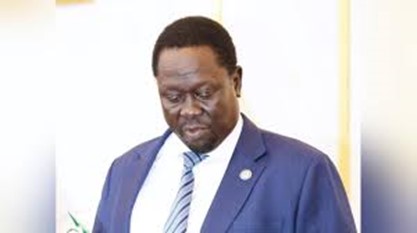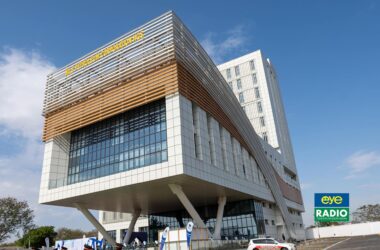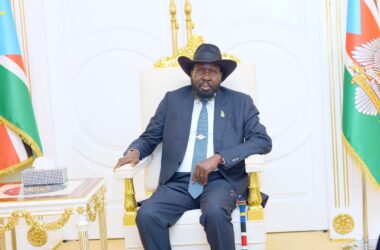By Jacob Onuha Nelson
The Government of the Republic of South Sudan has launched a high-level field visit to Aweil County in Northern Bahr el Ghazal State.
Addressing the media on Tuesday at the Ministry of Agriculture in Juba, Abdelbagi Hussein Akol, the Minister of Agriculture and Food Security, confirmed that the delegation would pay a high-level visit to assess the progress of government–led agricultural production initiatives in the country.
“The visit, led by the Ministry of Agriculture and Food Security, aims to assess the progress of the government-led agricultural production initiatives that are central to South Sudan’s strategy for economic recovery, food security, and self-sufficiency,” Minister Hussein said.
While in Aweil, Minister Hussein stated that the delegation will first receive a briefing from the State Governor. They will then inspect major agricultural infrastructure and production activities at the Aweil scheme, one of the government’s flagship programs driving national food security and rural development.
“Planned inspection areas include the construction of 26.7 km of feeder roads, establishment of water yard facilities, cultivation of four basins, and construction of a research and seed storage facility, all implemented under the Building Resilience for Food and Nutrition Security (BRAFON) project, funded by the African Development Bank,” he stated.
The delegation is also scheduled to visit the newly established Agro-Mechanical Service Center. This center stations tractors, harvesters, and other mechanization equipment closer to the farming community to scale up agricultural production.
“These centres will provide vital repairs, maintenance, and service support to ensure reliable access to mechanization tools that enhance productivity and reduce post-harvest losses,” he added.
The Minister also disclosed that the visit will monitor the implementation of the Climate-Resilient Agriculture and Food Transformation (CRAFT) project in Aweil’s scheme, another African Development Bank-funded initiative designed to boost agricultural productivity, improve food security, and build climate resilience.
The Ministry will focus on value chains such as sorghum, groundnut, and fisheries to promote climate-smart agriculture technologies and strengthen research collaboration with national institutions, including the University of Juba. The Minister emphasized that agriculture remains the heart of economic recovery efforts.
The Government of South Sudan is urging the public to note the Ministry’s commitment to transforming agriculture as the backbone of the economy. It calls upon citizens to engage in food production and improve food security situations through increased production, mechanization, and innovation.
“We aim to ensure every household becomes food-secure and that our nation reduces reliance on food imports,” he assured.
South Sudan’s agriculture has massive, untapped potential due to abundant land and water resources, but this potential is severely hindered by conflict, climate change, poor infrastructure, and a lack of quality inputs.




